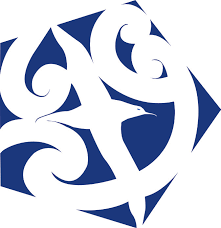To truly stand in solidarity with the victims of the Christchurch Mosque Massacre, we must recognise our failings
A statement from staff and students at the National Centre for Peace and Conflict Studies, University of Otago
Tuatahi ake, ka mihi ki ngā ātua o tēnei tō tātou nei ao marama.
Tuarua, ka mihi atu ki tērā hunga i mate ai i tērā o ngā parekura i Ōtautahi i tērā
wiki. Ko te tūmanaako ia kua hoki rātou ki tō rātou ake kāinga tūturu e noho ia I te
taha o ō rātou mātua tīpuna, nā reira, ki aua tā ngata tini, ki aua tāngata mano,
haere, haere, haere atu rā.
Tuatoru, nei mātou ko te Centre for Peace and Conflict studies o te Whare Wānanga
o Ōtākou e whakapūaki ana i ō mātou mamae, me ō mātou auē.
E taka ana te mahi a te roi o te mata i runga i te aro ha mo rātou kua hunga, kua
ngaro ki te pō.
Moe mai rā.
Kei noho tātou ka wareware!
We write in memory of 50 innocent lives lost to senseless hate in Christchurch on Friday. We write in honour of the dozens more who now suffer wounds that will heal but never fade. We write to mourn alongside the Muslims of Aotearoa New Zealand, whose dreams of and rights to peace in this land were shattered. We acknowledge that you, our Muslim neighbours, friends, and family, have had your sense of safety attacked, and that your sacred spaces of community and prayer no longer feel like sanctuary. Most of us have never experienced the kind of grief you are experiencing right now, but please know that we care deeply that you are living with this terrible experience.
These horrific events should not have happened, but they did. The Christchurch massacre is a challenge to all of us in Aotearoa New Zealand to ask hard questions about how it happened, and about whether we are doing enough to ensure such brutal violence will not happen here again. While there have been many expressions of solidarity in recent days saying that white supremacist ideology has no place in our society, it is also important to recognise that, sadly, white supremacist ideology is far from unknown in New Zealand. Colonial massacres have been committed in these islands, and collective wounds remain unhealed to this day. White supremacist
organisations have existed for years, and continue to exist in New Zealand. Questions will have to be answered about whether we failed to acknowledge the full extent of the threat they represent, to people of colour, and
to the very fabric of our society.
So, while we welcome the government’s proposal to ban semi-automatic weapons in New Zealand, we believe it does not go far enough in recognising the underlying factors that gave rise to last Friday’s attacks.
The Christchurch shooter walked among us, unspotted, and we have yet to fully understand how he was able to do so. Peace and conflict research shows that the willingness to commit violence does not emerge in a vacuum
– we learn from others about who does and doesn’t deserve to be protected. We learn from others who is part of ‘us’ and who we see as ‘other’. We cannot only reduce the availability of weapons, we must also confront any ideologies in our society that claim violence against a group of people is justified.
New Zealand should take some pride and comfort in the outpouring of sympathy and solidarity with our Muslim communities in the wake of this tragedy, but we know that sympathy is not enough. We must, with great humility, acknowledge our failings as a society, express our collective regret that we did not address the presence of such hate sooner, and commit to doing better in the future. Many Kiwis are saying at the moment,
“This is not who we are”. But we believe this atrocity calls us to honestly acknowledge long-existing problems of racism and othering in our society; how many among us are made to feel that they do not belong, or that they somehow belong less than others. Such honesty requires this society to say instead, “This is not who we want to be”.
Everyone living in New Zealand can take this terrible event as a reminder of our responsibility to build a truly inclusive society. As a peace and conflict research centre we recognise we have a particular responsibility to do more to share insights from our research with those working to end violence, and those most directly affected by it. No one has all the answers - if we did, such violence would be unknown. But we need, at least, to start asking the right questions. What more can we do to confront the influence of such ideologies in ourselves and others? What more can we do to ensure everyone feels safe, valued and included in our society? While recognising our own limitations, in the times ahead we at the National Centre for Peace and Conflict Studies will play a role in encouraging New Zealanders to have these difficult conversations, providing spaces where often
- marginalised voices can be heard publically. We welcome suggestions for how we can do more, and we encourage everyone to commit to making any contribution they can towards making New Zealand the society most of us want it to be. Acting together, many small actions can add up to a big difference. But in order to truly stand in solidarity with our Muslim communities, who are suffering most deeply right now, we must first recognise that we can, and must, do better.
Aroha ki te tangata
E rongo whakairia ki runga kia tina!
Tina!
Haumiee, huiee
Taikiee
Staff and students
National Centre for Peace and Conflict Studies
University of Otago


